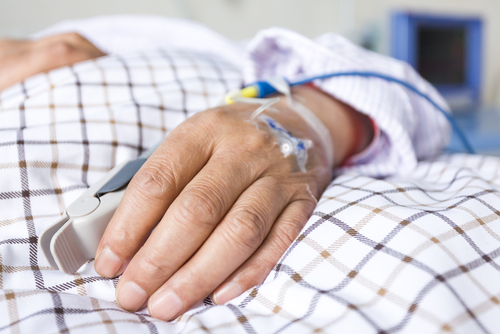Bariatric Surgery a Feasible Option for Adolescents with Prader-Willi, Case Report Suggests
Written by |

With careful multidisciplinary evaluation and psychosocial support, adolescents with Prader-Willi syndrome (PWS) with severe obesity can undergo bariatric surgery with successful results, a case report suggests.
The study, “Laparoscopic sleeve gastrectomy in an adolescent with Prader-Willi syndrome: psychosocial implications,” was published in the journal Nutrition.
PWS is the most common genetic cause of life-threatening obesity in children and adolescents. Patients with PWS develop an insatiable appetite, food-seeking behaviors, lack of satiety (feeling full), and intellectual and behavioral difficulties. The combination of these issues makes dietary restriction and standard weight loss programs ineffective in this population.
Consequently, most PWS patients experience serious early-onset obesity-related issues, such as obstructive sleep apnea (OSA), high blood pressure, diabetes, and heart failure, potentially leading to premature death.
The question of whether bariatric surgery (performed on the stomach or intestines to induce weight loss) is an effective option for these patients is still up for debate, as many physicians are concerned with its safety and the patient’s ability to maintain weight loss.
In this report, Italian physicians describe the case of a 16-year-old male with PWS with a history of early-onset obesity, weighing 223 kilograms (about 491 pounds), a body mass index (BMI) of 80.9 kg/m2 (a normal, healthy BMI ranges between 18.5 and 24.9 kg/m2), as well as several obesity-related issues including severe OSA with nocturnal respiratory failure, high blood pressure, and impaired glucose tolerance, which can lead to diabetes.
The patient had already tried several weight loss programs, including hospitalization in specialized clinics, to no avail. Hence, he was considered a candidate for bariatric surgery.
All bariatric surgery candidates must undergo a surgical visit, followed by psychiatric and psychosocial evaluation. Over the next six months, the patient regularly attended all scheduled appointments with the psychiatrist, and repeatedly stated his desire for bariatric surgery.
The patient had realistic expectations in terms of how the surgery could improve his quality of life and health, and was supported by his parents.
Due to the severity of his obesity, his multiple comorbidities, and the failure of all previous weight loss programs, physicians approved him to undergo bariatric surgery, specifically sleeve gastrectomy (SG) — a type of bariatric surgery that involves removing part of the stomach to make it smaller.
The surgery was performed without complications.
At the two-month follow-up visit, the patient had lost 25 kilograms (about 55 pounds), and his BMI had dropped to 71.8 kg/m2. He also had improved blood pressure control and glucose tolerance.
The psychiatric visit revealed that the patient’s overall mood had improved, and his anxiety and irritability were almost completely resolved. The patient also resumed previously abandoned activities such as swimming.
At the six-month follow-up, the patient showed a further BMI drop to 64.59 kg/m2, and demonstrated even better control of blood pressure and glucose tolerance. He also continued to feel better psychologically, and continued to participate in physical activities.
“Results from the first six months of follow-up were encouraging. The patient experienced a much decreased appetite, leading to a reduction in food-seeking behavior,” the researchers stated.
However, given the typical features of PWS patients — insatiable appetite, food seeking, and behavioral difficulties — the researchers believe that “bariatric surgery represents a first step in the context of a severe multifaceted complex situation,” and strongly recommend for the surgery to be accompanied by “adequate tailored psychosocial assessment and management.”
The team concluded, “This case report supports the feasibility of SG in selected adolescents with PWS. Careful, tailored multidisciplinary evaluation and psychosocial support for the patient and the patient’s family is crucial, both in the pre- and postsurgical phase.”





